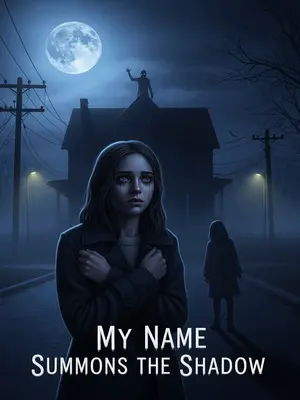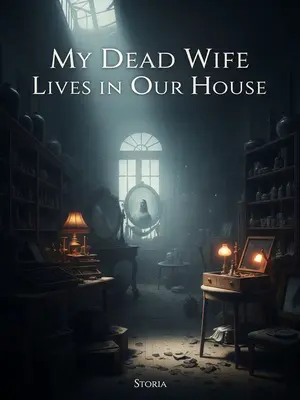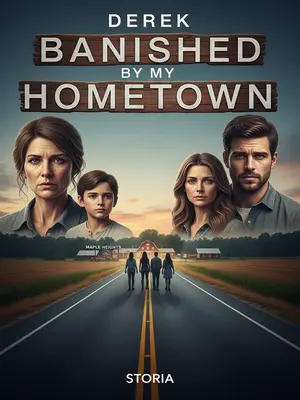Chapter 2: A Price for Mercy
After serving Evelyn her lunch—a plate of grilled chicken and a side of salad—I went to check on Penny. The kitchen was warm, the smell of roasting meat filling the air. I tucked a napkin under her plate and watched her pick at her food, worry gnawing at my gut.
She’d been dizzy and suffering from headaches lately, unable to sleep at night, and had grown noticeably thinner. Her hands shook as she ate, her skin stretched tight over her knuckles. The other maids gave her a wide berth, afraid the sickness might be catching.
I knew this was already moderate mercury poisoning. The symptoms were textbook—tremors, insomnia, weight loss. I’d seen the same thing in old medical journals, but it was different when it was someone you knew.
In modern medicine, chelation therapy is used to treat mercury poisoning. I remembered the diagrams in my old textbooks, the neat columns of symptoms and treatments. Here, those words felt useless, like a language no one spoke anymore.
But here, there were no instruments, no way to get the medicine. The Whitaker house was all polished wood and silver cutlery, but when it came to real medicine, it might as well have been the Dark Ages.
I was helpless. The word tasted bitter on my tongue. I hated it, hated how small and powerless it made me feel.
All I could do was bring her some herbal teas to help flush the poison, though the effect was barely noticeable. I brewed the teas with trembling hands, measuring each leaf with desperate hope. But every cup felt like a drop in the ocean.
Penny ate some cookies, drank her tea, and smiled with genuine satisfaction. She savored each bite, her eyes lighting up for just a moment. It was a small, fragile happiness, but it was real.
“Thank you, Miss Grace. You’re so good to me.” Her voice was soft, almost childlike. It made me want to gather her up and carry her far away from this place.
She was only fifteen, her features still soft and girlish. She looked younger than her years, her cheeks still round, her eyes wide with innocence the world hadn’t managed to steal—yet.
Her hair was dry and yellow from malnutrition, her frame small and thin. She wore her poverty like a second skin. Even her laughter seemed lighter, as if she was afraid to take up too much space.
I asked her why she was willing to be a housemaid. It was a question I’d always wanted to ask, but never dared. Today, I couldn’t help myself.
“My father died young. My mother struggles to raise three younger siblings alone. By serving the master, I can earn an extra fifty dollars a month. I just want to help my family.” Her words were matter-of-fact, without a trace of self-pity. I could see the pride in her eyes, the fierce determination that kept her going.
“Have you ever thought about leaving?” I asked it gently, not wanting to frighten her. She looked away, chewing her lip in thought.
She shook her head. “I’ve been with the Whitakers since I was little. I don’t know what life is like outside. If I get sent away, it might not be any better than here. At least now I get enough to eat, and I have you to look after me, Miss Grace. I’m already grateful.”
Her gratitude was genuine, but it broke my heart. No child should have to measure happiness in scraps and kindness from strangers.
She grinned, showing a row of uneven teeth, her smile sweet and pure. On her thin, dark cheeks, two small dimples appeared. For a moment, the room seemed brighter, her laughter echoing off the walls. It was a reminder of everything that had been lost—and everything worth fighting for.
This was the so-called “shameless housemaid” Evelyn spoke of. I wondered if Evelyn had ever really seen her, or if she only saw the role Penny played in her carefully ordered world.
My heart was a mess of emotions. I wanted to scream, to shake the walls until someone listened. But all I could do was hold her hand, silent and useless.
I used to think, if this world had modern birth control, maybe it would spare so many women from suffering. It was a thought that haunted me at night, as I lay awake listening to the wind rattle the windows. So much pain, so much needless loss, all for want of a little progress.
But when I asked Mrs. Harper if there were any other ways to prevent pregnancy besides the tea,
She scoffed, “The market has plenty of lambskin and fish bladders, but how many men are willing to use them?” Her laughter was sharp, mocking. I could hear the truth in her words, the resignation that came from years of disappointment.
Again, I fell silent. There was nothing left to say. The world was what it was, and wishing wouldn’t change it.
It was a helpless kind of struggle—just like Penny’s fate, set in stone from the start. I felt trapped, caught in a web I couldn’t untangle. Every path led back to the same dead end.
I knew many ways to prevent poisoning, and I knew how to treat it. My head was full of knowledge, useless as dust in this place. I hated it—hated how little it mattered.
But in the end, I could do nothing. I carried that failure with me everywhere, a weight I couldn’t put down.
Penny didn’t survive her fifteenth winter. The cold that year was sharp as a knife, slicing through the thin walls and settling deep in your bones. Penny faded fast, her body giving out long before her spirit did.
As fireworks burst in the sky for New Year’s Eve, her body was discovered early that morning. The whole house was alive with celebration—laughter, music, the smell of roasting meat. But in the servants’ quarters, the world stopped.
When Evelyn heard the news, she was doing her hair and frowned in annoyance. “How unlucky.” She barely paused, her fingers still twisting a lock of hair around a curling iron. To her, Penny’s death was just another inconvenience, a blemish on an otherwise perfect holiday.
Mrs. Harper reminded her, “According to household custom, her family should get two hundred dollars.” She said it quietly, her voice steady. In this house, even grief had a price tag.
Evelyn frowned, feeling the loss. “Bringing bad luck to the house during the holidays and costing us so much? A hundred will do.” Her lips tightened, her eyes cold. The cost of compassion was always too high for her.
Knowing her temperament, Mrs. Harper didn’t argue further. She simply nodded, her face expressionless. There was no point in fighting a losing battle.
After she finished getting ready, Evelyn ordered me to bring her a bowl of imported bird’s nest soup from the kitchen. The soup shimmered in the porcelain bowl, its golden surface catching the morning light. Evelyn sipped it slowly, savoring every drop.
It was golden, flown in from Thailand, a single portion worth three hundred dollars. The irony wasn’t lost on me—one bowl of soup worth more than a girl’s life. The world was full of such cruelties.
Penny’s body was carried out the side gate. There was no ceremony, no words of farewell. Just a quiet procession, the kind that goes unnoticed by the world.
I went to see her off one last time. The sky was gray, the ground hard with frost. I stood in the shadows, watching as they lifted her small body into the waiting cart.
Her mother took the money and bought a coffin—no more, no less, exactly a hundred dollars. She counted the bills with trembling hands, her face set in grim determination. There was no room for grief—not yet.
“It’s my failing as a mother that I couldn’t even give her a proper resting place after death.” Her voice was raw, the words scraping against the cold morning air. But her eyes burned with a fierce pride.
The woman was frail and haggard, but her eyes held a steely resolve. She stood tall, shoulders squared, refusing to let the world see her break.
Behind her, three children wore patched, faded clothes, but they were all spotlessly clean. They clung to her skirt, their faces solemn and silent. Even in poverty, she’d taught them dignity.
I took out a pouch from my coat—the girls had pooled together some cash. My hands shook as I offered it, the weight of our small kindness heavy in my palm.
Mrs. Harper gave forty, I gave forty, Julia ten, and Daisy ten. We’d scraped together every spare cent, hoping it would bring some comfort.
A hundred dollars in all, a token of our affection for Penny. It wasn’t much, but it was all we had. We wanted her to know Penny was loved.
But her mother refused to accept it, no matter what. She pushed my hand away, her voice firm. “I can’t take your money. My daughter wouldn’t want that.”
“My daughter was cared for by you ladies while she was alive. How could I take your money now? If she knew, she wouldn’t agree either.”
She wouldn’t take a dime. Not now, not ever. Poor people have their own pride. She wouldn’t let anyone look down on Penny.
In that moment, I understood. Dignity was all she had left, and she guarded it fiercely.
No matter how hard life was, as a mother, she still carefully preserved her daughter’s last shred of dignity. She straightened Penny’s dress, smoothed her hair, and whispered a blessing as the coffin was nailed shut.
As I left, white ribbons still fluttered in the tiny front yard. A neighbor came by to write a memorial for her, unasked. The ribbons caught in the wind, pale against the winter sky. The neighbor’s handwriting was careful, each letter a small act of remembrance.
It was the first time I saw Penny’s real name:
Sarah Lee.
It was written in black ink on a scrap of paper, pinned to the gate for all to see. I stood there a long moment, letting the truth sink in.
A simple, ordinary name, but for parents here, it held their purest hopes and blessings.
Sarah Lee—nothing fancy, nothing borrowed. Just the name her mother had whispered over her crib, full of dreams for a better life.
No longer a flower or animal name bestowed by the mistress, nor a household nickname given by the master.
She was Sarah, not Penny.
She was herself, not someone else’s property.
She was a person.
For the first time, I saw her as more than a victim. She was a daughter, a sister, a girl with dreams and fears of her own.













